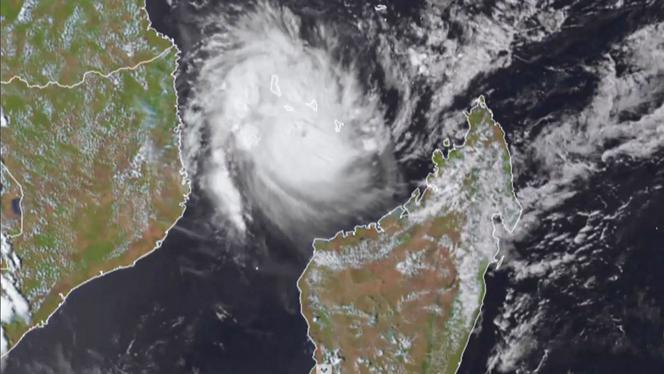
Cyclone Chido, which wreaked havoc on Mayotte on Saturday, December 14, continued its destructive path across the Indian Ocean, striking the Comoros archipelago and northern Mozambique’s Pemba region. While the cyclone caused significant damage in all three areas, the devastation appears to be most severe in Mayotte, the 101st French Department.
By Sunday morning, December 15, Cyclone Chido had reached Mozambique, bringing severe weather to the region. According to a provisional report released that evening, at least three people have died as a result of the storm. The cyclone, still powerful when it made landfall, hit a densely populated area in northern Mozambique, intensifying the need for urgent humanitarian aid.
Red Cross teams in the region have been mobilized to assist victims. Christian Pallier, head of the Red Cross delegation for the Indian Ocean, highlighted the organization’s readiness to respond: “We are in contact with the Mozambican Red Cross and the International Federation of the Red Cross to deploy support if necessary. This may involve resources from our warehouses in Réunion or from one of our other facilities in the Indian Ocean zone—we have 11 in total.”
Before reaching Mozambique, Cyclone Chido battered the Comoros archipelago. While the full extent of the damage in Comoros has not yet been reported, early assessments suggest it was less severe compared to Mayotte.
Mayotte, however, bore the brunt of the storm. With winds exceeding 200 kilometers per hour and torrential rainfall, the cyclone left extensive destruction in its wake. Roads were blocked, homes were destroyed, and power outages affected much of the island. Emergency services have been stretched thin as they work to restore infrastructure and assist displaced residents.
As Cyclone Chido moves further across the Indian Ocean, humanitarian organizations continue to monitor its trajectory and coordinate relief efforts. The Red Cross and other aid agencies are assessing needs across affected regions, with Mozambique now the primary focus due to the storm’s recent landfall.
The cyclone’s devastation highlights the vulnerability of Indian Ocean nations to extreme weather events, underscoring the importance of preparedness and rapid response to mitigate the impact of future disasters.
